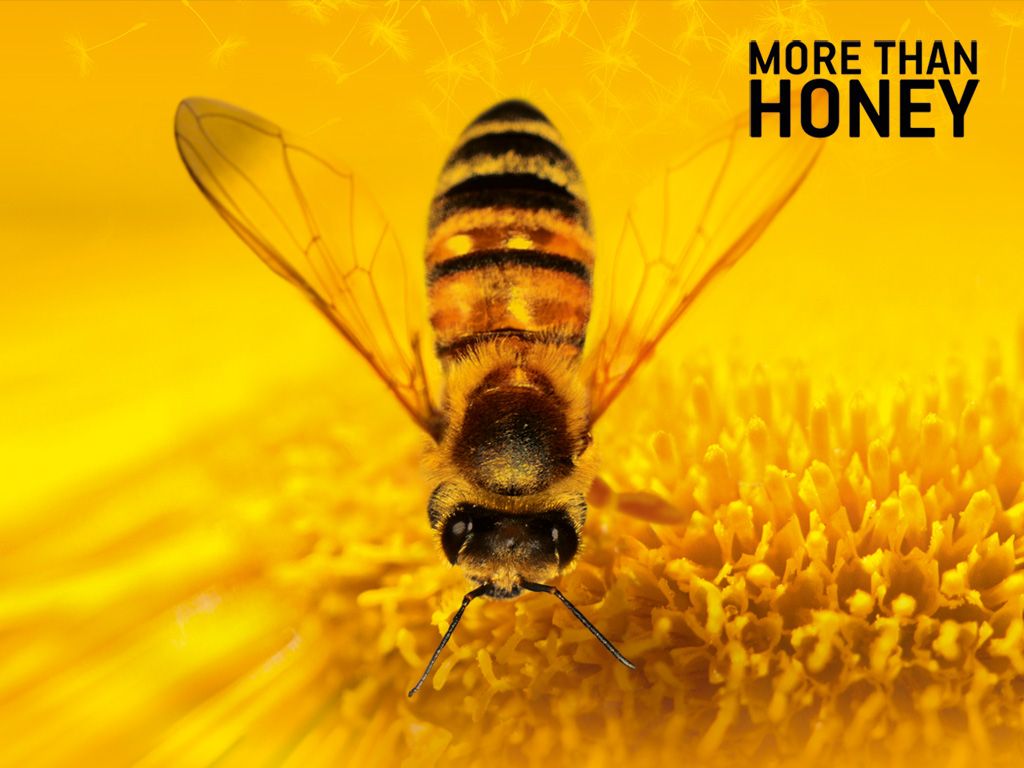
I’ve been enthusiastically recommending the documentary More Than Honey whenever the subject of what to watch comes up, and I’ve been getting a lot of “Oh, I noticed that in the queue” as the limp but polite response (streams on Netflix). My youngest son, who’s made a career out of deflecting my advice and interests, recommended it to me, knowing nothing about colony collapse disorder. I was certain the documentary would get to the bottom of the neonicotinoid debate, the pesticide thought to be primarily responsible for the scary decline in bee numbers, which has been banned in Europe but not yet in the U.S. The documentary never even mentions the word. Instead, it suggests that what’s taking out the bees is a complex system failure that’s grounded in the nature of our relationship with bees, our breeding them for docility, our industrialization of bees to keep up with our industrialization of agriculture. Instead of dryly ticking off possible culprits responsible for the decline in bee health and numbers, the film travels the world to interview current practitioners of bee keeping, whether in the Swiss Alps or the almond orchards of California. Rather than a polemic, it is a portrait of the domestication of bees and what that means for the bees and us. It depicts the commercial exploitation of bees as well as the intense love and respect generational beekeepers have for their domesticated charges, and the heartbreak they feel when the hives are checked in spring, only to be found as quiet as tombs.
But it’s the virtuosic “bee cam” that follows the bees everywhere they go, into the hive, into the sky, giving us literally a bee’s eye view of the world, that takes this documentary by Markus Imhoof out of the realm of science into art. It is this astonishing cinematography that elevates the film to the level of March of the Penguins style documentaries.
I found this comment to an online review of the film from Walter Haefeker, President of the European Professional Beekeepers Association:
“As a beekeeper, I have seen many documentaries about bees over the years. ‘More than Honey’ stands out due to the spectacular camera work, but also due to it’s thoughtful treatment of this very complex subject. Instead of relentlessly pushing a single message, it gives the viewer a deep appreciation of the honey bee as a super organism while at the same time introducing the audience to different takes on the trouble bees are in from different parts of the world.
Some of the shots are not very flattering to beekeepers. But this is an aspect I particularly like about the film and this film maker. Where someone else might have turned off the camera to avoid unpleasantness, Markus Imhoof keeps it rolling. The result is a very honest look at the relationship between man and bees, which is also very helpful for the beekeeping community to discuss which direction to take. Even though even professional beekeeping in the EU is not quite as industrial as in the US, the movie shows, that what at first appears to be a traditional paradise in Switzerland turns out to have a whole other set of man made problems. What can be seen in the film is that by striving for racial purity of the national swiss bee, the genetic base of these bees has been narrowed so much, that there now is trouble in paradise. In Germany, where some beekeepers also are pursuing goals of racial purity of local bees, the film has caused them think again. One of the key points of the film appears to be, that it is not a good idea to shape the genetics of the honey bee too much towards our narrow goals informed by capitalism or nationalism or worse. But there are many other important points as well. So go see the movie and find out for yourself.”
One of the film’s surprising twists suggests that the hero of this sad story just might be someone we’ve been led to believe is pure, sci-fi villain: The so-called Africanized bee, a hybrid that escaped controlled experiments in South America. They’re mean, ornery, full of strong survival instincts and, contrary to propaganda, capable of making large quantities of honey. They’re the freedom fighters of the bee world, hacking our carefully domesticated paradigm that, for many complex reasons, has been the death of bees. And I shouldn’t call this a sad story, because there’s something amazingly hopeful happening on an island off the coast of Australia…

Added to the queue. After “Sherlock”.
I watched this recently and have been begging everyone I know to do the same. It was so blown away by the cinematography and how comprehensive it was. We followed it up with Vanishing of the Bees, which was terrible, preachy, and voiced over by Ellen Page (worst voice ever).
I had no idea that our modern agriculture practices required us to truck bees all over the country, keeping them healthy with antibiotics. It made me question my love of almonds, for shame!
Hoov, after viewing, you’ll be wanting a Swiss valley of your own.
Heahter, what about the “no sparrows” under Mao?! I had to google that, and it’s shockingly true. And I’ll never buy Calif. almond honey, that’s for sure.
I’ll be viewing shortly! I was annoyed recently by an article by a local bee keeper in our free newspaper. Probably I need to be more open minded…